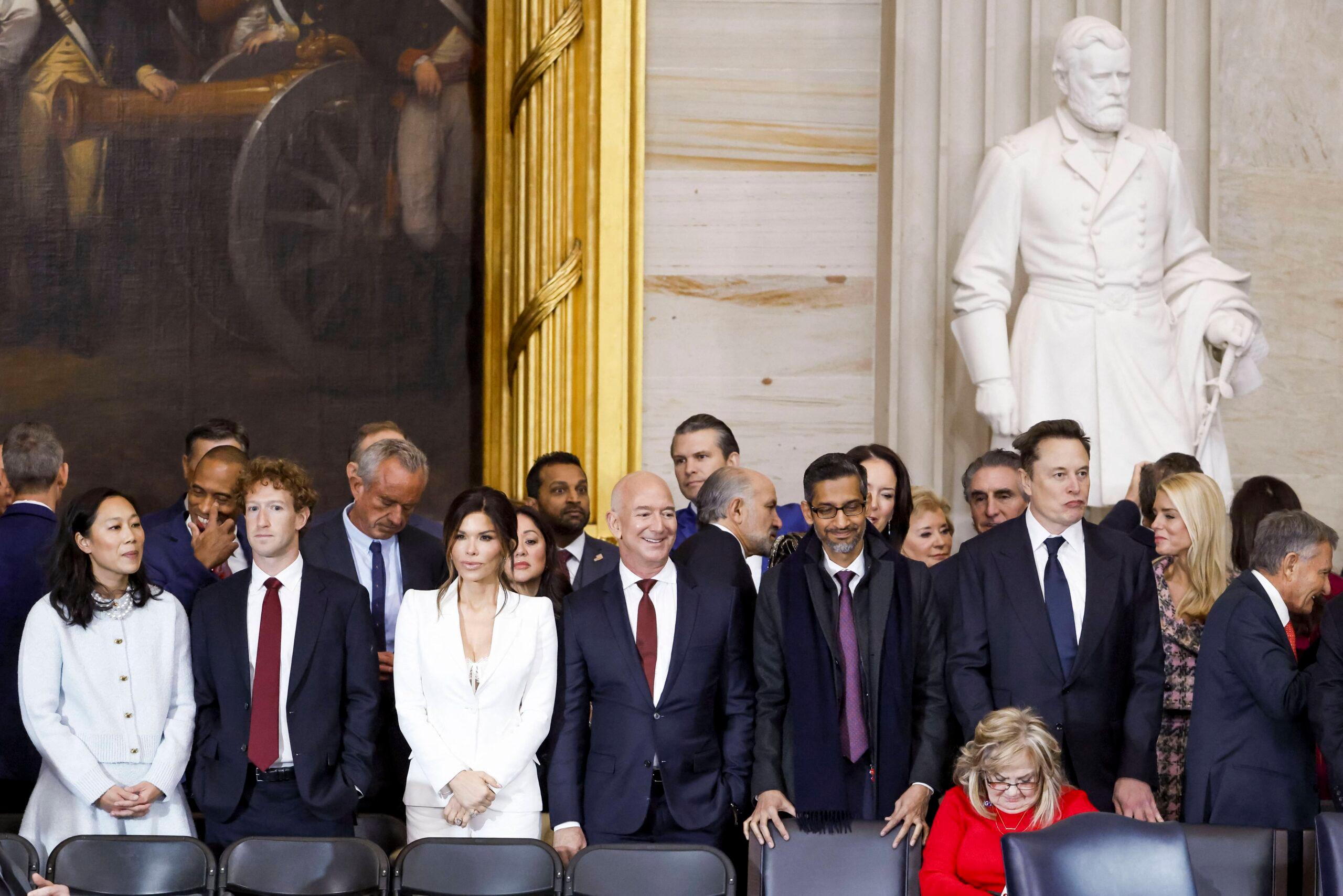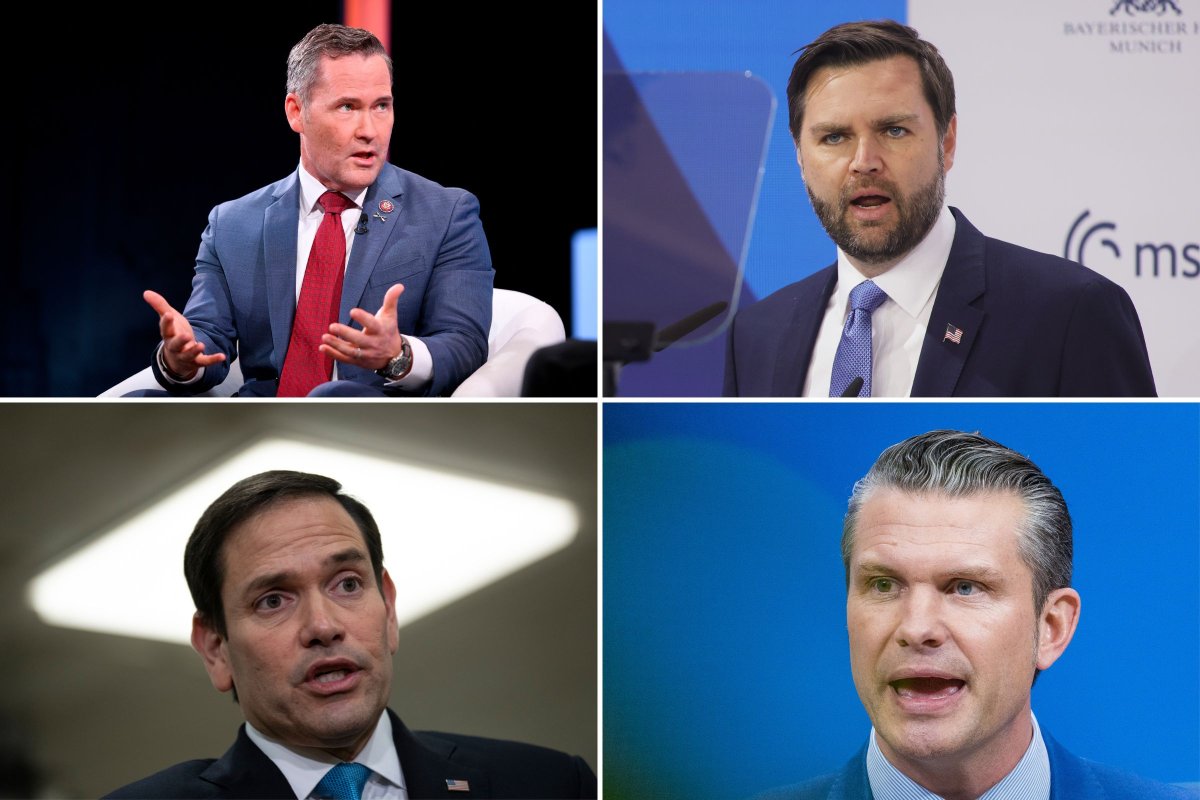The Zuckerberg-Trump Dynamic: Implications For The Tech Industry

Table of Contents
Trump's Use of Facebook and its Impact
Donald Trump's masterful use of Facebook during his presidential campaigns and presidency significantly altered the political landscape and presented unprecedented challenges for the social media giant. His strategic deployment of the platform showcased both its power and its vulnerabilities.
Amplifying the Conservative Voice
Trump's campaign effectively harnessed Facebook's tools to reach a vast conservative audience, bypassing traditional media outlets and creating a direct line of communication with his supporters.
- Targeted Advertising: The Trump campaign utilized Facebook's sophisticated targeting capabilities to deliver personalized messages to specific demographics, maximizing campaign reach and efficiency. This precision targeting allowed for highly effective micro-campaigns tailored to individual voter segments.
- Facebook Groups and Pages: Pro-Trump groups and pages proliferated on Facebook, creating echo chambers where like-minded individuals reinforced each other's beliefs and spread pro-Trump messaging far and wide. The organic reach within these groups amplified the campaign's message exponentially.
- Impact on Political Polarization: This targeted approach, while effective, contributed to the growing political polarization seen in the United States. The curated information feeds and echo chambers fostered within Facebook's ecosystem limited exposure to opposing viewpoints, deepening partisan divides. The spread of misinformation also played a significant role in this polarization.
Controversial Content and Moderation
Facebook faced immense pressure in moderating content related to Trump, grappling with the tension between free speech principles and the need to curb harmful rhetoric. The platform's decisions often drew intense criticism from both sides of the political spectrum.
- Lenient or Heavy-Handed Moderation: Facebook's content moderation policies were frequently criticized as being either too lenient, allowing misinformation and inflammatory language to spread unchecked, or too heavy-handed, stifling free speech and leading to accusations of bias.
- Impact on User Trust: The inconsistent application of these policies eroded public trust in Facebook's ability to maintain a safe and reliable platform. Users questioned the platform's neutrality and its commitment to combating the spread of false information.
- Ethical and Legal Dilemmas: Facebook's struggle to moderate Trump's content highlights the ethical and legal dilemmas faced by social media companies in managing politically charged content in a way that respects free speech while protecting users from harm. The platform continuously navigated a minefield of potential legal challenges and public backlash.
Zuckerberg's Responses and the Debate on Tech Regulation
Mark Zuckerberg's responses to the controversies surrounding Trump's use of Facebook and the subsequent calls for increased tech regulation have been central to the ongoing debate about the power and responsibility of social media companies.
Zuckerberg's Testimony and Congressional Hearings
Zuckerberg's appearances before Congress regarding Facebook's role in the 2016 election and its handling of misinformation exposed the company to intense scrutiny.
- Criticisms of Facebook: During these hearings, Zuckerberg and Facebook faced intense criticism for their perceived failures in combating the spread of misinformation, foreign interference, and hate speech.
- Impact on Public Opinion: These hearings significantly shaped public opinion, fueling the demand for stricter government regulations on social media platforms. The hearings brought the issue of tech regulation into the mainstream consciousness.
- Zuckerberg's Defense: Zuckerberg's defense of Facebook's policies and practices often fell short of satisfying critics, who argued that the platform was not doing enough to address the issues.
The Implications for Tech Regulation
The Zuckerberg-Trump dynamic has significantly intensified the debate surrounding government regulation of social media platforms.
- Proposed Legislation: Numerous bills have been proposed aimed at curbing the spread of misinformation, foreign interference in elections, and other harmful activities on social media platforms. These proposals vary significantly in their scope and approach.
- Impact on Free Speech and Innovation: The potential impact of these regulations on free speech and innovation within the tech industry remains a subject of intense debate. Balancing the need for regulation with the protection of fundamental rights is a key challenge.
- Arguments For and Against Regulation: The arguments for and against increased government oversight of social media companies revolve around the balance between protecting users from harm and preserving free speech and technological innovation.
Long-Term Effects on the Tech Industry and Political Discourse
The long-term consequences of the Zuckerberg-Trump dynamic are still unfolding, but its impact on public trust, political discourse, and the future of social media is undeniable.
The Erosion of Trust
The events surrounding the Zuckerberg-Trump dynamic have significantly eroded public trust in social media platforms and their role in democratic processes.
- Skepticism Surrounding Social Media: There is increasing skepticism about social media's ability to promote healthy public discourse and its susceptibility to manipulation and misinformation.
- Impact of Misinformation: The spread of misinformation and disinformation has contributed to political polarization, societal division, and a decline in trust in established institutions.
- Restoring Public Trust: Social media companies face the significant challenge of regaining public trust and demonstrating their commitment to creating safe and reliable platforms.
The Future of Social Media and Political Engagement
The Zuckerberg-Trump dynamic has profound implications for the future of social media and political engagement in the digital age.
- Changes in Algorithms and Policies: We can expect to see continued changes in social media algorithms and content moderation policies as companies grapple with the challenges of misinformation and political manipulation.
- Role of Emerging Technologies: Emerging technologies like AI may play a critical role in addressing these challenges, but their effectiveness and potential biases need careful consideration.
- Need for Media Literacy: Improving media literacy and critical thinking skills among users is crucial for navigating the complexities of the digital information landscape and combating the spread of misinformation.
Conclusion
The Zuckerberg-Trump dynamic serves as a crucial case study illustrating the complex interplay between technology, politics, and society. The events surrounding their interactions have significantly impacted the tech industry, sparking crucial debates about platform responsibility, content moderation, and the regulation of social media. Understanding this dynamic is vital for navigating the future of online discourse and ensuring a more informed and responsible digital landscape. To further explore the complexities of this influential relationship, continue researching the Zuckerberg-Trump dynamic and its ongoing ramifications for the future of tech.

Featured Posts
-
 Putin Ends Easter Truce Ukraine Conflict Intensifies
Apr 22, 2025
Putin Ends Easter Truce Ukraine Conflict Intensifies
Apr 22, 2025 -
 Understanding Papal Conclaves History Secrecy And The Election Of A Pope
Apr 22, 2025
Understanding Papal Conclaves History Secrecy And The Election Of A Pope
Apr 22, 2025 -
 Canadian Bread Price Fixing Lawsuit 500 Million Settlement Hearing In May
Apr 22, 2025
Canadian Bread Price Fixing Lawsuit 500 Million Settlement Hearing In May
Apr 22, 2025 -
 Pentagon Chaos Claims And Leaked Signal Chat The Hegseth Controversy
Apr 22, 2025
Pentagon Chaos Claims And Leaked Signal Chat The Hegseth Controversy
Apr 22, 2025 -
 Post Fire Price Gouging In La A Reality Tv Stars Perspective
Apr 22, 2025
Post Fire Price Gouging In La A Reality Tv Stars Perspective
Apr 22, 2025
